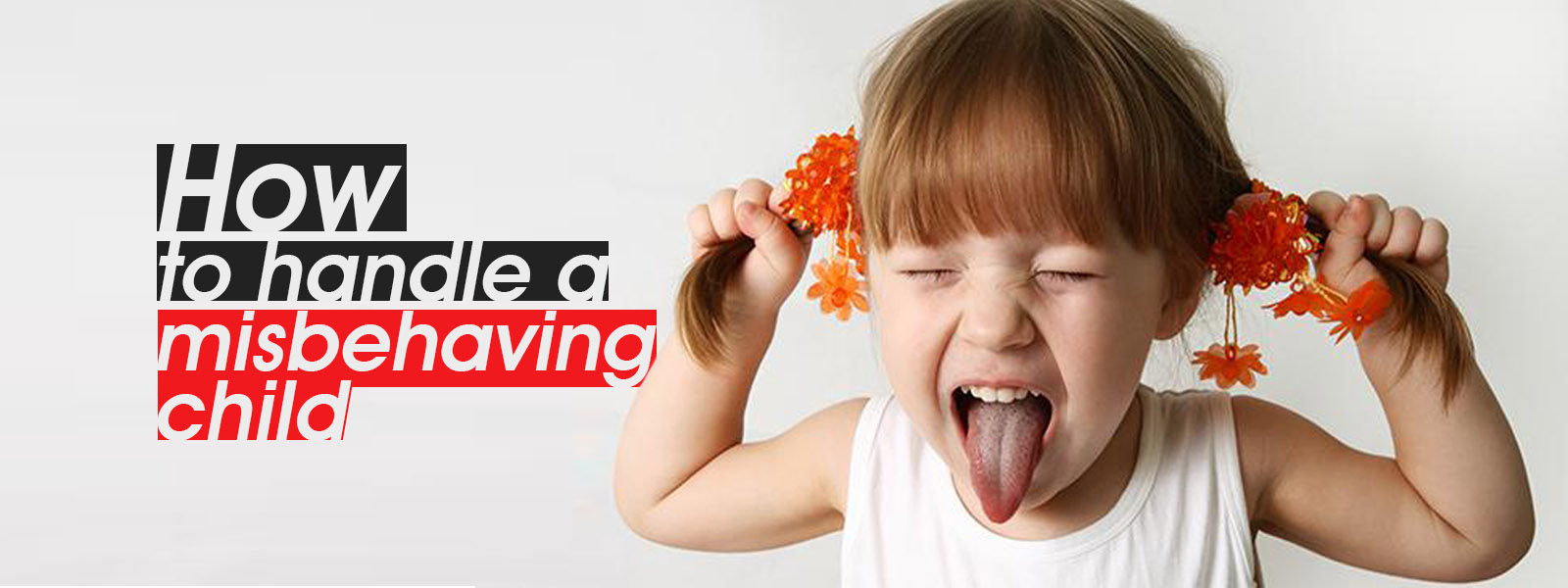.webp)

A guide to handling misbehaving children
COLOMBO (News 1st): Every part of parenting is challenging. From the day a baby is born, all the way through the teen years. Then there are some kids who are just more difficult to handle than others. No two children hold the same characteristics even though some may have similar qualities. So, while some are, maybe, easy to raise - others may test your parenting abilities and patience.
Life can be extra challenging and even depressing when children are fussy, stubborn or just down-right difficult. So, what do we miss out when dealing with particularly difficult children? We often use the wrong tones and approaches which result in parents sending out the wrong message to their children.
Sometimes we feel the need to use punishment or action to discipline our children -particularly if they are stubborn or disobedient. Yet, there are better ways to mark your ground as a parent, gain the needed respect and ensure your child does what is expected of them.
Misbehaving children cause embarrassment to their parents - especially if the misbehavior takes place in public. As difficult as this may be to deal with, it is essential to understand that acting out is simply a part of growing up.
Every time a child chooses to disobey you, they are challenging your parenting skills. It is important that you remain calm and respond with confident authority. A child can be very supportive towards kind authority rather than towards the anger emotion.




Toddlers: 3 – 5/6-year-olds
Let’s take an infant for instance. When it comes to newborn babies, screaming is the only form of communication, and this should not be considered a negative aspect. Non-stop crying is a good way to understand what your baby is going through. When a child starts crying it is very important to stay calm and go through a checklist of things.- Is it feeding time, is baby hungry?
- Does the baby’s comfort level require attention? Check if the baby is dry or needs a nappy change, maybe baby needs to be turned slightly - check - sleeping position.
- Your baby may have drunk too much milk and not burped properly, in which case pick your baby up and hold the baby upright against your shoulder and gently rub the back until baby burbs.
If your toddler decides to throw tantrums here’s what you do -
It is as simple as doing absolutely nothing. A tantrum thrown in public is probably the most embarrassing situation for a parent however the way it is handled determines the child’s assessment of the situation and believe me, this carries through to how they think of you as a parent later on. Kids above 3 years will attempt to push your buttons and brave the odds. Child psychologists have said this, time and again. Let the child kick and scream and roll on the ground as much as he wants and once he runs out of energy the tantrum will automatically come to a halt. Simply wait till your child subsides. Remember children in the 3-6 years age group are still developing emotionally. Showing affection when correcting their behavior, maintaining eye contact, speaking to them at their height level, will all help a great deal as this makes it easier for a young child to absorb what you are saying. Following this up with hugs and kisses will teach them to seek positive reactions from parents as opposed to a negative response which will be the outcome if a parent was to react through yelling and scolding in public.Children 7 – to 12 yrs
Implementing Authority Points?
Authority points are little instances you either win or lose authority when you ask your child to do something. Every time your child obeys you an authority point is won, every time they ignore or disobey you an authority point is lost. How then do you get them to do what is requested? Use kindness instead of a sharp tone. If your children are playing and you want them to stop, clean-up and prepare for studies and they ignore your first request. Instead of repeating yourself (which makes you lose an authority point) use a kind approach with authority’ like “What’s going on over here? You know you’ve got to clear this up, how soon is this going to happen?” You don’t give them an option to make an excuse, because you are not asking them why it has not been done, instead, you are asking how soon it will be done, which subconsciously prompts them to answer when they will do it. Punishments are not an effective way to teach children to change their ways. Develop a positive emotional tone with authority and use that to show them that you are not pleased and they have to immediately do what was requested. While there are hundreds of things that children can do to annoy you, all of their behaviors can be categorized under two parts.1. What you want them to do.
2. What you don’t want them to do.

Finding the stop behaviors &
using the Consequence Measure
Note down everything you want them to stop and add a consequence to what happens if, they don’t do what you ask. These consequences will be based on things they like to have or do which, you will limit for a time. Use this system once or twice and the children will realize you are serious.Teens 13 - 19yrs
If you ask any parent on how to deal with those terrible teenage years you may not really get an exact answer. The reason being due to changing hormones, the behavior of a teenager can be the most unpredictable thing on earth. When a teenager acts out, the ideal way to handle it would be, to handle them like a manager and not boss. Teens are looking for guidance. Yet, when you give them a black & white choice of ”it is either this or that”, teens tend to close up, shut you off or rebel by acting stubborn.So how do you handle a teenager?
The immediate response of parents is generally, to punish them. It certainly will not be easy but it is important to remember, that correcting teenage behavior can only be done by a parent with a firm hand and a caring outlook. Affection is often overlooked. The type of affection you show a teenager is certainly different from a smaller child but, a hug will help them even though it may be rejected with vigour. It is at this stage in life that kids really need attention and feel they are special to you and loved by you. Parents most often have their hands full with the younger kids and tend to expect their older kids to be more responsible and helpful when they reach their teens. Yet what they forget is that – this is the most important and emotionally formative years in a child’s life. When kids are younger they are far more positive, love themselves and are on an even keel of happiness. But as they grow older the fears, doubts, and inhibitions start creeping into their hearts and minds. Keep in mind your teen is not as confident as they act out. This is the one period in life when they feel most vulnerable and alone. They don’t feel they can run to you as they did when they scratched their knee and you would kiss it better. They act tough when they truly feel lost. And they long for love and understanding.
This leaves you with – how can I best handle my teenager?
- Involve them in the things you see as the most problematic to you. If they are fussy with meals, having them help in the kitchen might solve the problem. Activities such as sorting and cutting vegetables, teaching them to bake goodies that they like, will create curiosity in them towards food. This will give parents the opportunity to discuss nutritious food along with spending quality time with them.
- Create moments to chat with them so they feel comfortable to tell you things that are going on in their life. Don’t demand to know, as this will only put them on guard. Try to leave areas for them to open up. Pick these moments to explain and guide them on what is acceptable and what isn’t.
- Give them responsibilities and chores. This way they can shine and make you proud and this will help them have a bond with you. Teens want more than anything to feel needed, important and treated like they are independent. If you handle your teen like this you will find that the chances of them letting you down or misbehaving is much less. They will instead grow up with a deep sense of responsibility and self-worth, Children can certainly be a blessing and it is always important to remember the role you play as a parent or guardian. Misbehaving does not last therefore keeping calm and using the situation to guide you will ensure positive results. Our role as (a) parent/s is, not to be bossy and control kids - but guide them to become adults that are independent, confident and self-loving individuals who are empathetic, compassionate and loving human beings.
Other Articles
Featured News





.png )











-797273_550x300.jpg)

















.gif)